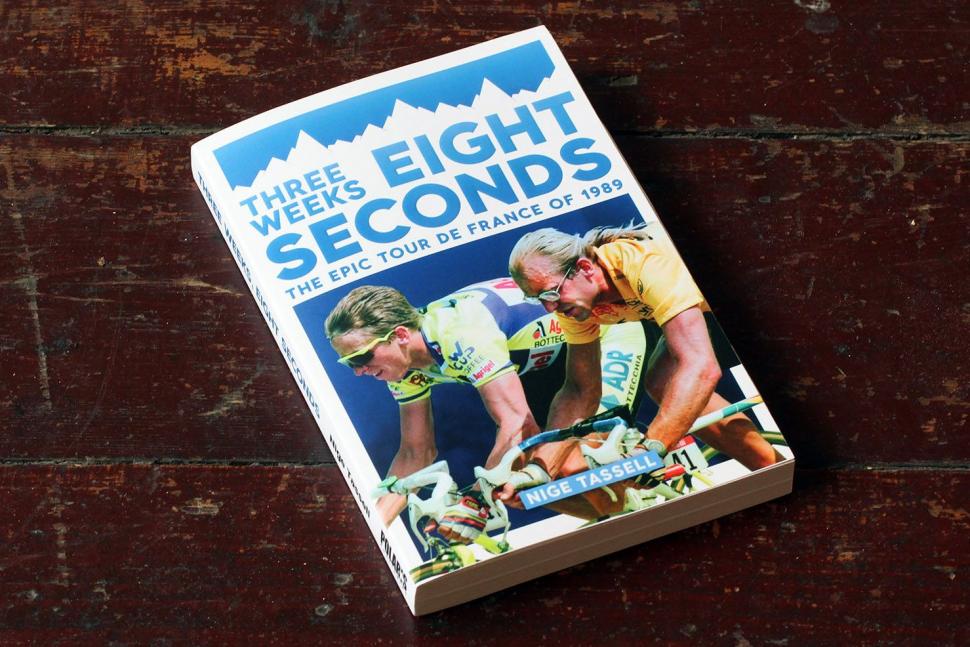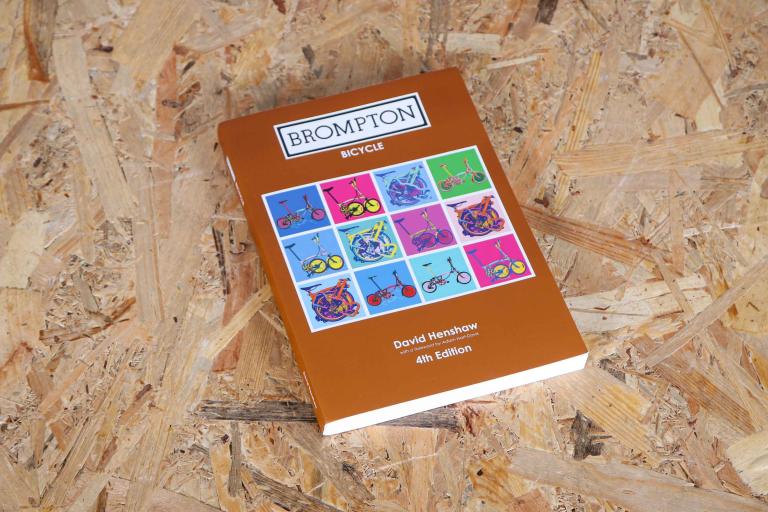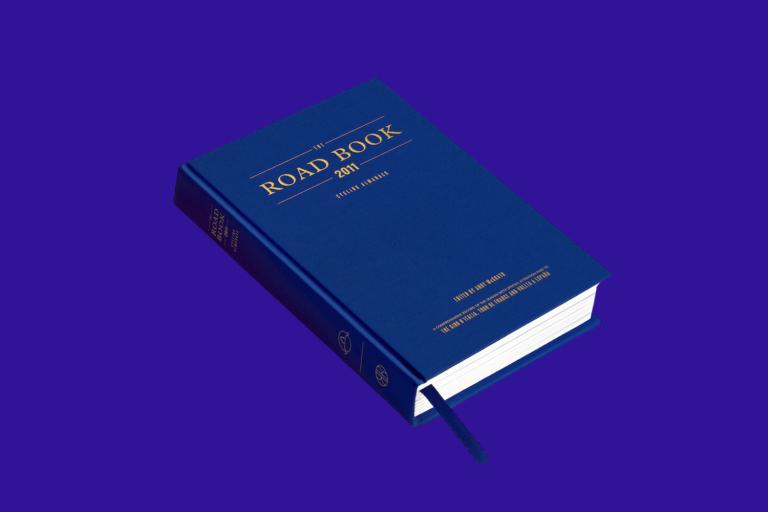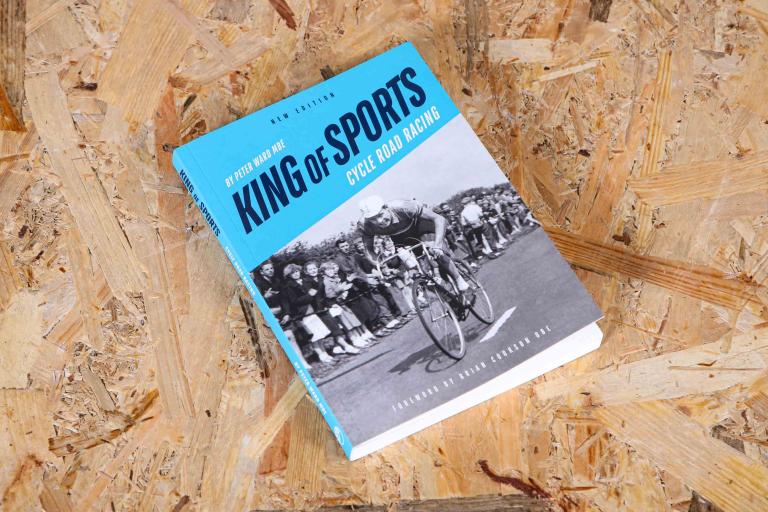- News
- Reviews
- Bikes
- Accessories
- Accessories - misc
- Computer mounts
- Bags
- Bar ends
- Bike bags & cases
- Bottle cages
- Bottles
- Cameras
- Car racks
- Child seats
- Computers
- Glasses
- GPS units
- Helmets
- Lights - front
- Lights - rear
- Lights - sets
- Locks
- Mirrors
- Mudguards
- Racks
- Pumps & CO2 inflators
- Puncture kits
- Reflectives
- Smart watches
- Stands and racks
- Trailers
- Clothing
- Components
- Bar tape & grips
- Bottom brackets
- Brake & gear cables
- Brake & STI levers
- Brake pads & spares
- Brakes
- Cassettes & freewheels
- Chains
- Chainsets & chainrings
- Derailleurs - front
- Derailleurs - rear
- Forks
- Gear levers & shifters
- Groupsets
- Handlebars & extensions
- Headsets
- Hubs
- Inner tubes
- Pedals
- Quick releases & skewers
- Saddles
- Seatposts
- Stems
- Wheels
- Tyres
- Health, fitness and nutrition
- Tools and workshop
- Miscellaneous
- Cross country mountain bikes
- Tubeless valves
- Buyers Guides
- Features
- Forum
- Recommends
- Podcast
review
 Eight Seconds The Epic Tour De France of 1989.jpg
Eight Seconds The Epic Tour De France of 1989.jpg£14.99
VERDICT:
A detailed account of the exciting 1989 Tour de France – but little more than that
Weight:
357g
Contact:
At road.cc every product is thoroughly tested for as long as it takes to get a proper insight into how well it works. Our reviewers are experienced cyclists that we trust to be objective. While we strive to ensure that opinions expressed are backed up by facts, reviews are by their nature an informed opinion, not a definitive verdict. We don't intentionally try to break anything (except locks) but we do try to look for weak points in any design. The overall score is not just an average of the other scores: it reflects both a product's function and value – with value determined by how a product compares with items of similar spec, quality, and price.
What the road.cc scores meanGood scores are more common than bad, because fortunately good products are more common than bad.
- Exceptional
- Excellent
- Very Good
- Good
- Quite good
- Average
- Not so good
- Poor
- Bad
- Appalling
'Yellow Jersey holder loses time and race lead to another GC contender in final Time Trial' is not an unusual occurrence in a stage race, and nor does it make for a punchy headline – yet that is normally the main focus of anything written about the 1989 Tour de France. Despite the title, in 'Three weeks, eight seconds' Nige Tassell doesn't concentrate on just that one story in his new book about the race.
You might question why anyone felt it necessary to write about the 1989 Tour: sure, le Tour is the most recognised and followed cycle race in the world, which will help to provide an audience for any book written about it, but why that year and why now?
There is no doubt that the 1989 race offered above average excitement and interest right from the start, and Tassell's book covers the three weeks' worth of stories well – even if for most people the main talking point will remain that final winning margin of eight seconds.
As for the timing, I am at a loss to understand what has prompted this book's arrival now, with no obvious anniversaries or other reasons.
The race got off to an unusual start when the defending champion, Pedro Delgado, turned up to the prologue time trial 2.40 minutes after his start time. There you are wearing race number 1, riding for one of the best teams in the world, in probably the most scrutinised time trial of your career, and you make an elementary mistake like that. Can it get any worse?
Yes: the very next day Delgado lost even more minutes to the leaders because he was unable to keep up with his teammates in the team time trial, so once again ending the day as the Lanterne Rouge.
Despite that newsworthy start, why is it that those eight seconds remain the dominant talking point of the race? Partly it was because the result was unexpected: surely it was not possible for Greg LeMond to overcome a 50-second disadvantage to Laurent Fignon in 24.5 kilometres against the clock?
There was the added debate surrounding the legality and effectiveness of aero equipment, which was in its infancy back then. Although all the various elements had already been used successfully in time trials earlier in the year and also in this race, there was still uncertainty as to what to use and when to use it – which gave plenty of opportunity for ongoing speculation about the impact of equipment choice (and hair styles) on the result.
You could also argue that the organisers struck lucky with the race format, with a shock result coming on the last day of the event at its highest profile venue: both time trials and the Champs-Élysées had been used on the final day before – but never both together. Was there ever a better year to have made that decision?
> Books every cyclist should have on their shelves
I have not seen any other work by Tassell about cycling, but he has clearly prepared well for this project. He makes use of the many biographies, histories, compendiums and magazines that make some mention of the year's event (and which make up the page-and-a-half bibliography of worthwhile articles and books). To this are added the comments from various riders who were involved at the time, although most have probably made similar points many times over the years.
Tassell relies a lot on those books and interviews, which means that a high proportion of the book appears as quotes from these sources; I don't come across many books like this, and I had to keep referring back to remind myself whose words I was reading.
It also means that, while the book brings together a lot of existing information for the first time, it may have limited the scope to bring anything new to the table.
If you happen to want a stage-by-stage account of the 1989 race then you don't have many options: in fact until now you may have been limited to Tour 89, which also covered that year's Giro d'Italia. However, a blow-by-blow account is all you will get here, as unlike The Great Bike Race or Slaying the Badger, Three weeks, Eight Seconds does not do nearly as much to set the 1989 race in the broader context of the history of the race, or careers of the main participants.
In winning, LeMond took another step towards being a contender for a pub quiz question, as he later became 'the first rider to win the Tour with three different teams – La Vie Claire, ADR, and Z'. And he is still the only one to have managed that.
Verdict
A detailed account of the exciting 1989 Tour de France – but little more than that
road.cc test report
Make and model: Three Weeks Eight Seconds The Epic Tour De France of 1989
Size tested: Format: 234 x 156mm pbk ,352pp, Illustrations: 16pp colour plates
Tell us what the product is for, and who it's aimed at. What do the manufacturers say about it? How does that compare to your own feelings about it?
From Polaris Publishing:
The 1989 Tour de France is arguably the greatest ever. It saw American rider Greg LeMond overturn a 50-second deficit to France's Laurent Fignon on the final stage on the Champs Élysées to snatch the title by a mere eight seconds. After three weeks and more than 2,000 miles in the saddle, these few seconds remain the smallest margin of victory in the race's 100+ year history.
But as dramatic as that Sunday afternoon on the streets of Paris was, the race wasn't just about that one time-trial. During the previous fortnight, the leader's yellow jersey had swapped back and forth between LeMond and Fignon in a titanic struggle for supremacy, a battle with more twists and turns than the maziest Alpine mountain pass. At no point during the entire three weeks were LeMond and Fignon separated by more than 53 seconds.
In Three Weeks, Eight Seconds, Nige Tassell brings one of cycling's most astonishing stories to life, examining that extraordinary race in all its multi-faceted glory with fresh interviews and new perspectives and laying bare that towering heights of adrenaline, agony, excitement, torment and triumph that it produced.
Tell us some more about the technical aspects of the product?
Title: Three weeks, eight seconds
Author: Nige Tassell
Publisher: Polaris Publishing
Date: 15/6/17
Format: Paperback
Pages: 232
ISBN: 9781909715530
Price: £14.99
Tell us how the product performed overall when used for its designed purpose
It tells the story well, but it's a story that will already be familiar to many.
Tell us what you particularly liked about the product
It brings back memories of a great Tour.
Tell us what you particularly disliked about the product
I am already familiar with most of the story.
Did you enjoy using the product? Yes, once acclimatised to the quote-heavy format.
Would you consider buying the product? Maybe
Would you recommend the product to a friend? Yes
Use this box to explain your score
It does what it says: a detailed account of an exciting Tour.
About the tester
Age: 55
I usually ride: My best bike is:
I've been riding for: Over 20 years I ride: Every day I would class myself as: Expert
I regularly do the following types of riding: commuting, touring, club rides, sportives, general fitness riding




Similar to my Air Horn, used for frightening HGVs whilst sustainably powered by a hand pump... 60psi is enough to sound several bursts!
If this government were truly interested in change, and joined up government between...
It's easy to remove the pipe from the fasteners which are C shaped so able to hold but not trap the pipe. Filtering through traffic is then...
And you know that because...? I'd read this elsewhere and was surprised to read the story on here - hadn't thought they were "cyclists".
85kg weight limit?! I come in well under that, but I'm not sure I'd trust a frame with a limit that low.
What was on offer only 2 weeks ago was either 'world' for £20 or tiny areas such as 'Blackpool area' for £5 each or something. You couldn't just...
“fastest, lightest, and most durable road tyres yet” Yeah right. "Strong, light, cheap. Pick two."
Surely a penalty notice will have been delivered by now, which will state where the car is parked?
A smidge of £8.5K. Seriously. Someone needs to have a strong coffee.